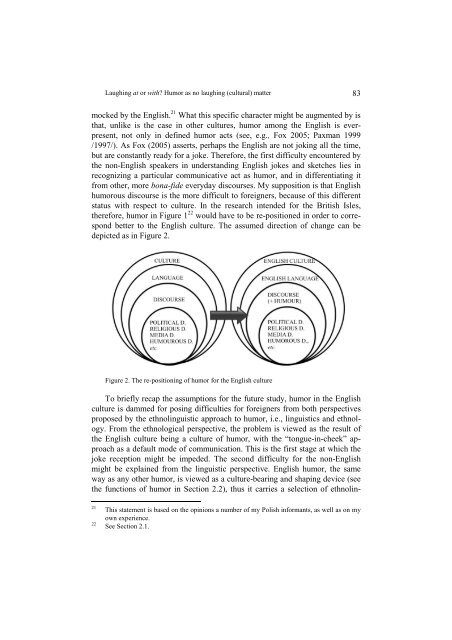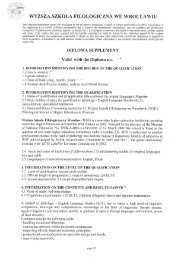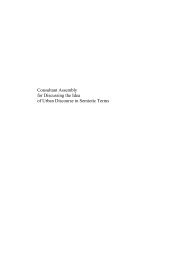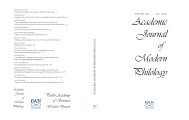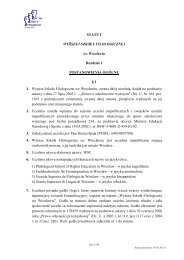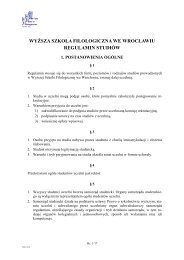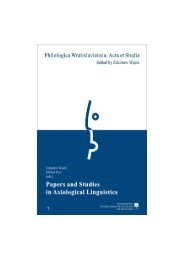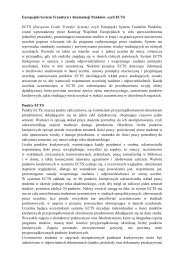s - Wyższa SzkoÅa Filologiczna we WrocÅawiu
s - Wyższa SzkoÅa Filologiczna we WrocÅawiu
s - Wyższa SzkoÅa Filologiczna we WrocÅawiu
You also want an ePaper? Increase the reach of your titles
YUMPU automatically turns print PDFs into web optimized ePapers that Google loves.
Laughing at or with? Humor as no laughing (cultural) matter 83<br />
mocked by the English. 21 What this specific character might be augmented by is<br />
that, unlike is the case in other cultures, humor among the English is everpresent,<br />
not only in defined humor acts (see, e.g., Fox 2005; Paxman 1999<br />
/1997/). As Fox (2005) asserts, perhaps the English are not joking all the time,<br />
but are constantly ready for a joke. Therefore, the first difficulty encountered by<br />
the non-English speakers in understanding English jokes and sketches lies in<br />
recognizing a particular communicative act as humor, and in differentiating it<br />
from other, more bona-fide everyday discourses. My supposition is that English<br />
humorous discourse is the more difficult to foreigners, because of this different<br />
status with respect to culture. In the research intended for the British Isles,<br />
therefore, humor in Figure 1 22 would have to be re-positioned in order to correspond<br />
better to the English culture. The assumed direction of change can be<br />
depicted as in Figure 2.<br />
Figure 2. The re-positioning of humor for the English culture<br />
To briefly recap the assumptions for the future study, humor in the English<br />
culture is dammed for posing difficulties for foreigners from both perspectives<br />
proposed by the ethnolinguistic approach to humor, i.e., linguistics and ethnology.<br />
From the ethnological perspective, the problem is vie<strong>we</strong>d as the result of<br />
the English culture being a culture of humor, with the “tongue-in-cheek” approach<br />
as a default mode of communication. This is the first stage at which the<br />
joke reception might be impeded. The second difficulty for the non-English<br />
might be explained from the linguistic perspective. English humor, the same<br />
way as any other humor, is vie<strong>we</strong>d as a culture-bearing and shaping device (see<br />
the functions of humor in Section 2.2), thus it carries a selection of ethnolin-<br />
21<br />
22<br />
This statement is based on the opinions a number of my Polish informants, as <strong>we</strong>ll as on my<br />
own experience.<br />
See Section 2.1.


